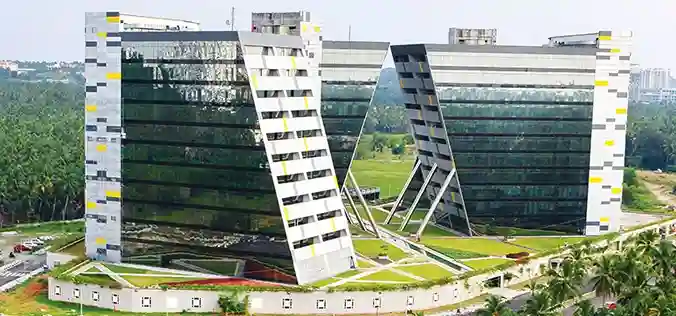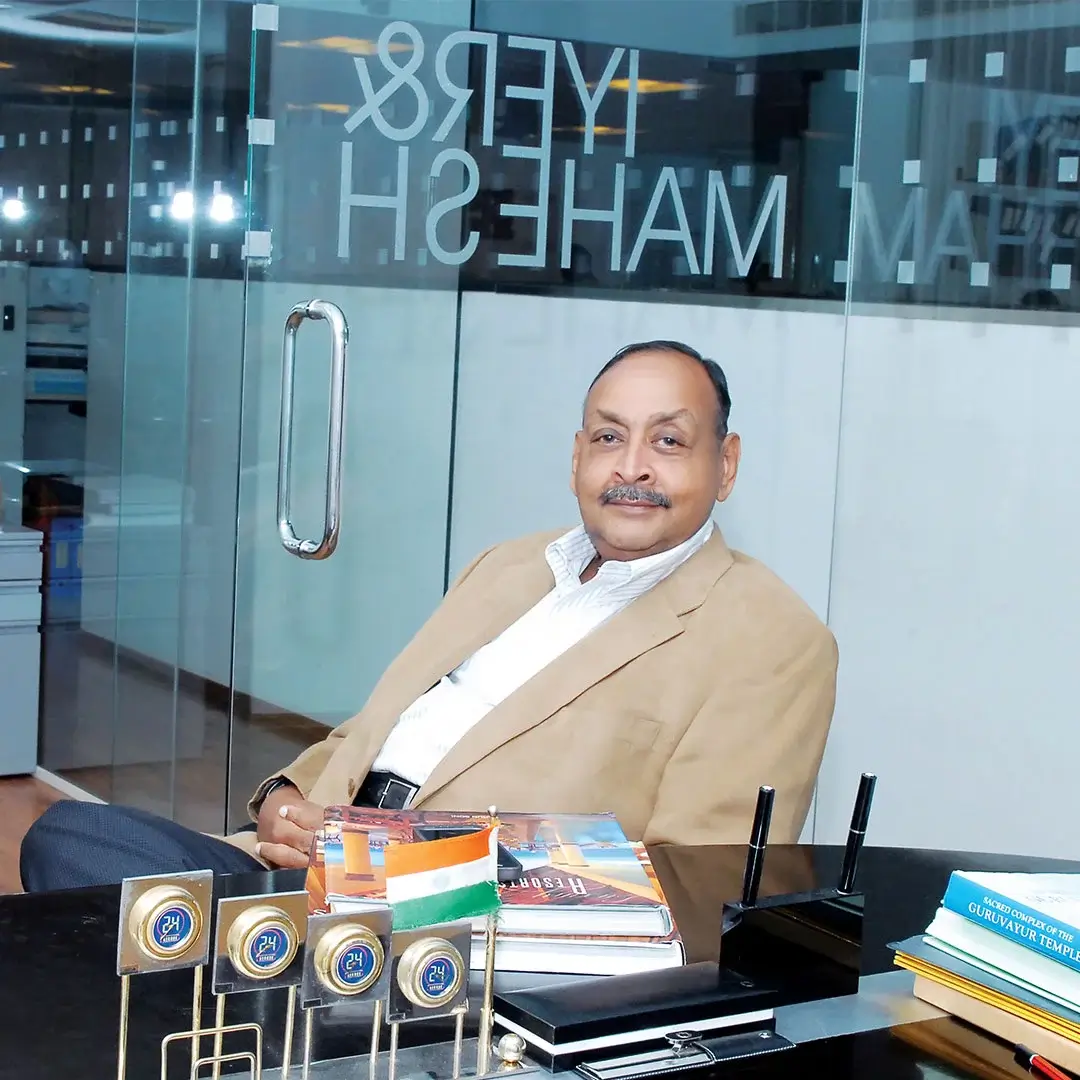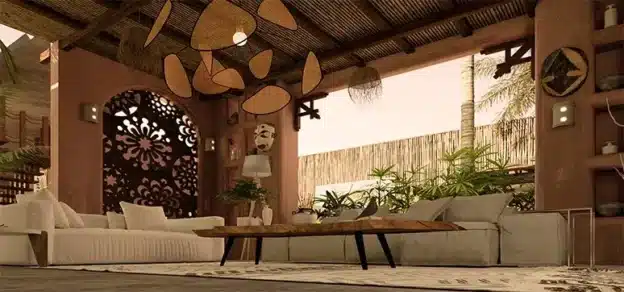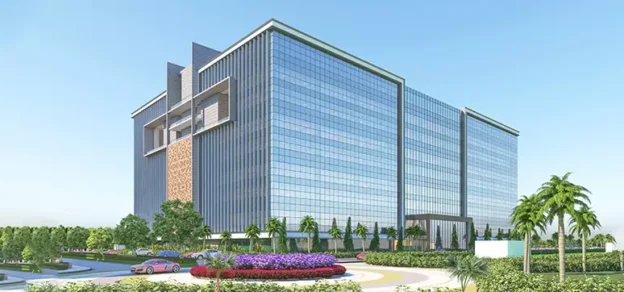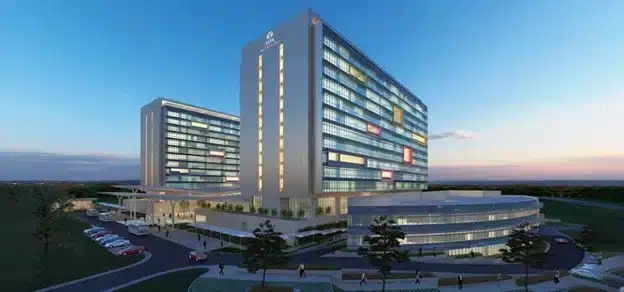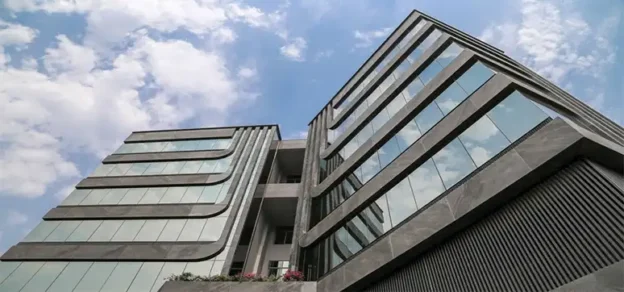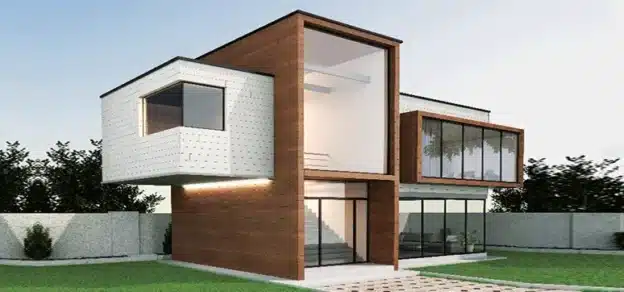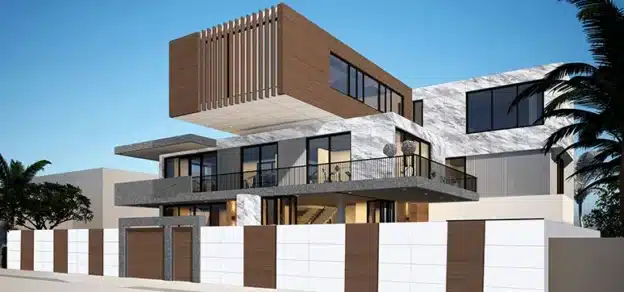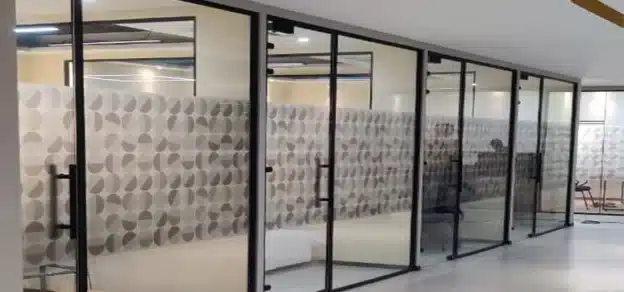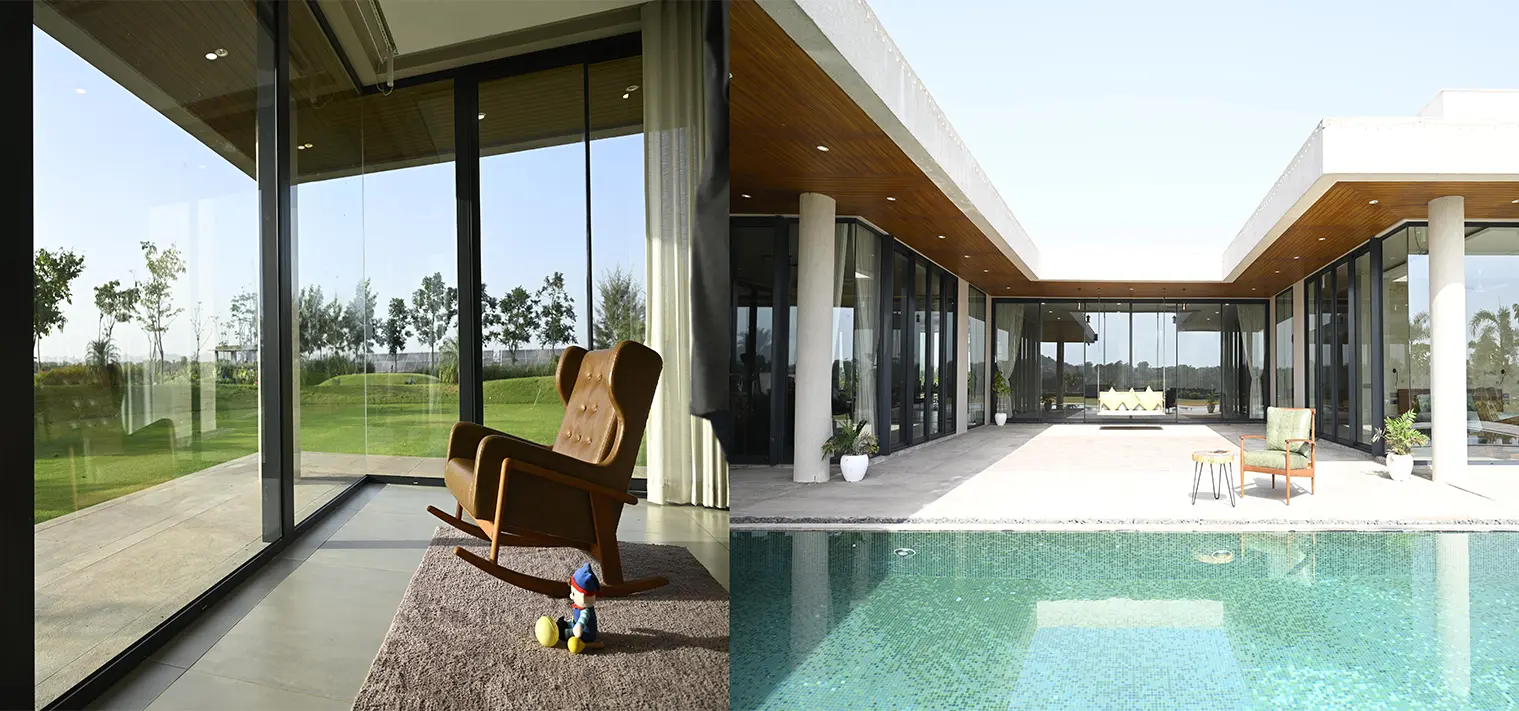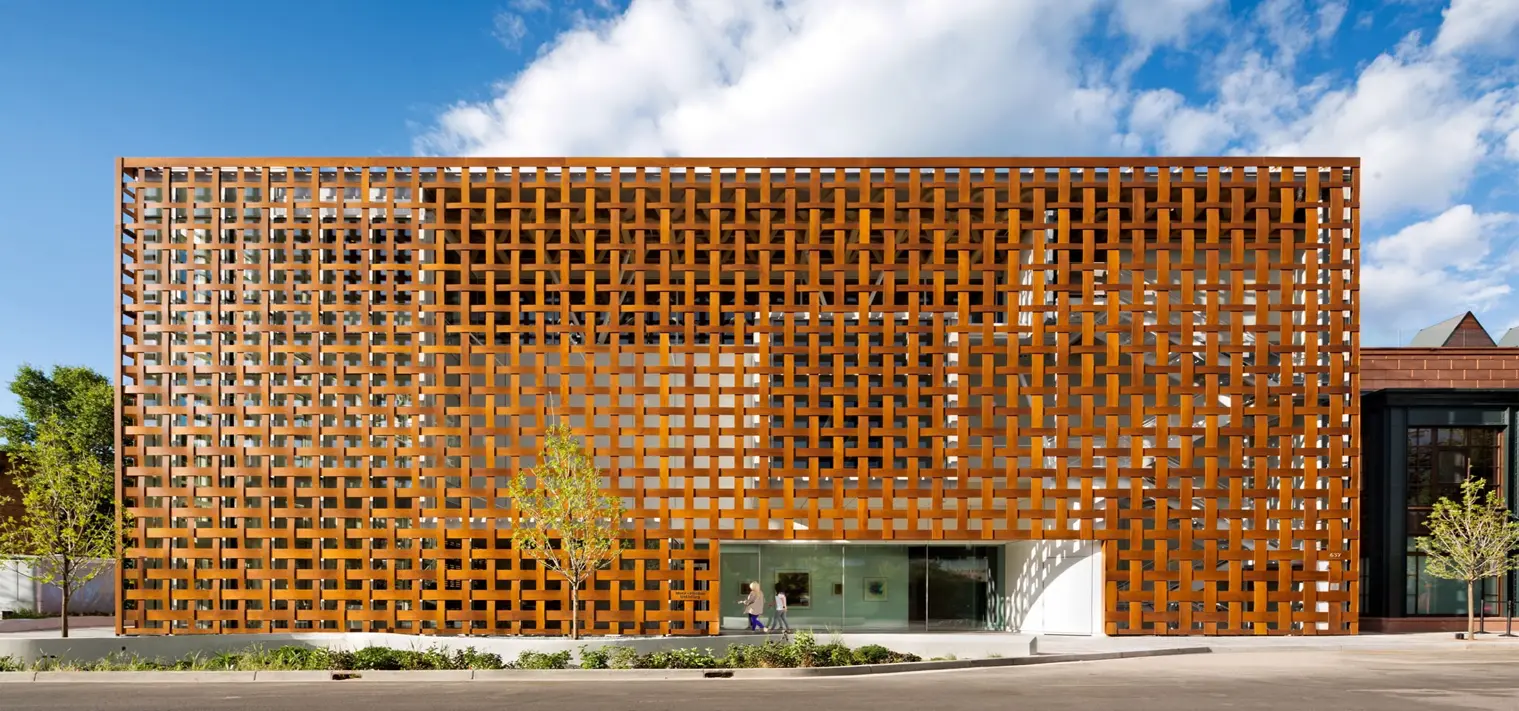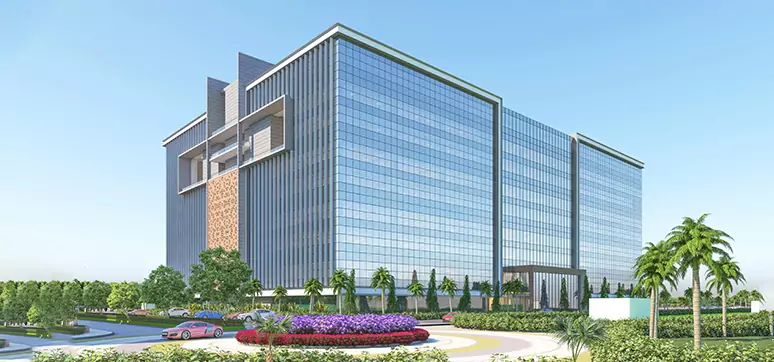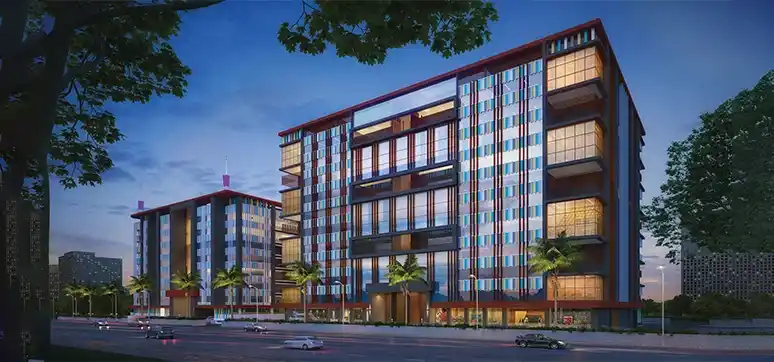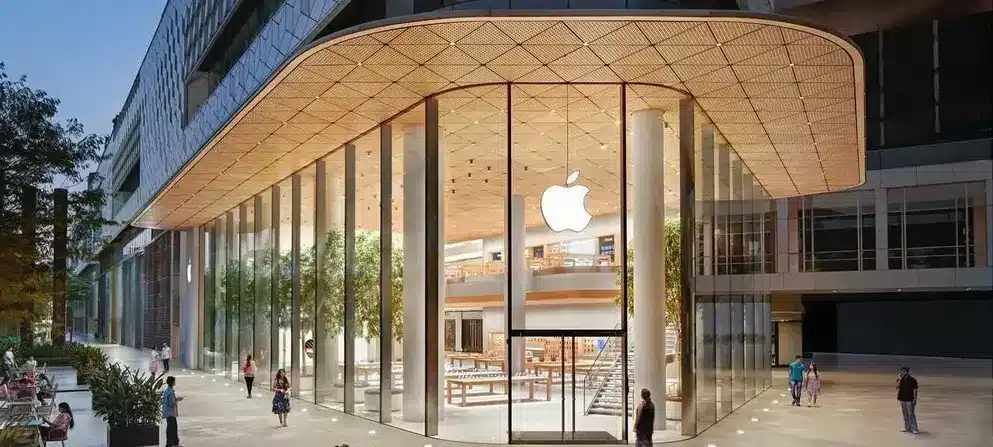In a conversation with WFM, Ar. N. Mahesh talks about his practice, inspirations, design approach and his milestone projects.
♦ Please Tell us About your Practice?
I started my architectural practice in 1976, i.e., 43 years back, the firm has designed a wide variety of projects ranging from a small “Home” to “5 Star Hotels”. Perhaps some of the largest, the tallest and The research block is a 6 level modern, sleek structure which is planned to house at least 300 biotechnology researchers in a spacious and well-appointed laboratory environment.
This technological building faces south-east and northwest, and solar penetration and heat gain are controlled by the use of vertical aluminium fins, which are rotatable. As per the solar study, the incident sunlight on the large glazed windows will be reduced by 80 percent. The U-value, therefore, is expected to be less than 1.5.
Bio-Innovation Centre at Aakulam, Trivandrum for Rajiv Gandhi Centre for Biotechnology longest buildings in Kerala at one time were designed by my firm Iyer & Mahesh. I had two short stints as a lecturer in architecture at the College of Engineering, Trivandrum and two years I worked with eminent architect Charles Correa.
The chance to work with Charles Correa in 1974 became a reality when my best friend and mentor Ar. Gopakumar decided to leave Charles Correa (where he was a site architect) and started his own practice in 1974. At Ar. Gopa’s recommendation, Charles Correa appointed me as site architect of the iconic ITDC Ashoka Hotel at Kovalam.
I started my practice in 1976 and was in a way lucky to bag most of the big projects in Kerala, especially in Trivandrum, and fortunately had a quantum jump in practice as I was the only practicing professional architect with base in Trivandrum.
Technopark Phase-III, Trivandrum (In consortium with Architect Hafeez Contractor)
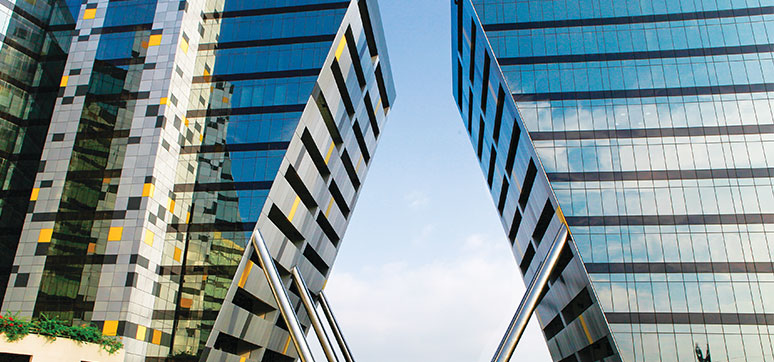
This massive 1.20 million Sq ft building with a two level car park and the podium is considered to be one of the ‘finest’ and ‘largest’ buildings in Kerala.
The two towers facing each other are ‘V’ in the plan and the solar “shading” is achieved by sloping the façade. The DGU, using low- E-glass, ensures the reduction of heat load and thereby reduces air-conditioning tonnage. The profusely landscaped podium adds to absorption of incident heat on the podium.
Bio-Innovation Centre at Aakulam, Trivandrum for Rajiv Gandhi Centre for Biotechnology
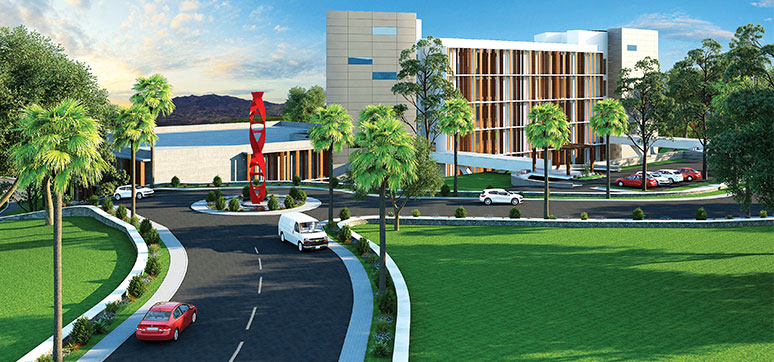
The research block is a 6-level modern, sleek structure which is planned to house at least 300 biotechnology researchers in a spacious and well-appointed laboratory environment.
This technological building faces south-east and northwest, and solar penetration and heat gain are controlled by the use of vertical aluminium fins, which are rotatable. As per the solar study, the incident sunlight on the large glazed windows will be reduced by 80 percent. The U-value, therefore, is expected to be less than 1.5.
Platinum Jubilee Academic Complex at Trivandrum for University of Kerala
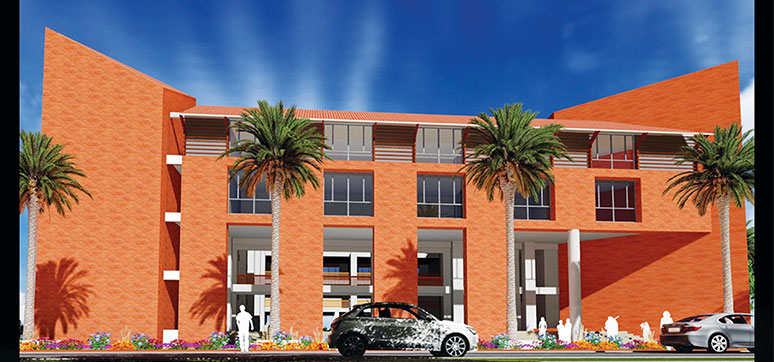
The brick-faced façade has deeply recessed windows as the building is not air-conditioned.
Moreover, as most of the academic spaces have windows on two sides i.e., exterior and interior courtyard side, there is ample cross ventilation. The central courtyard with an amphitheatre function as ‘lung’ of the building.
♦ What Inspired you to Become an Architect?
We are a family of designers and architects starting from my paternal great grant parent – popularly called School of Arts Narayana Iyer, and my paternal uncle Ar. M. Ramaswamy Iyer, who was the Chief Architect of state PWD, my cousin and eminent Architect Ar. G. Viswanathan and now my nephew Prayag (Chinnu) is a budding Architect. Probably it is family “Gene” combined with “Inspiration”.
♦ Could You Please Talk About a Few of your Ongoing Projects?
It will take a full day to talk of the thousands of projects and millions of square feet of buildings which I designed during the last 43 years. Ever since the year 1995, we at Iyer & Mahesh are mostly in ‘hotels & resorts’ design, while we are also associated with the design of institutional buildings, high-rise apartments, malls and corporate IT Buildings. Due to its small scale, we found it unviable to handle small residential buildings.
‘The Tamara’ Five Star Hotel, Trivandrum
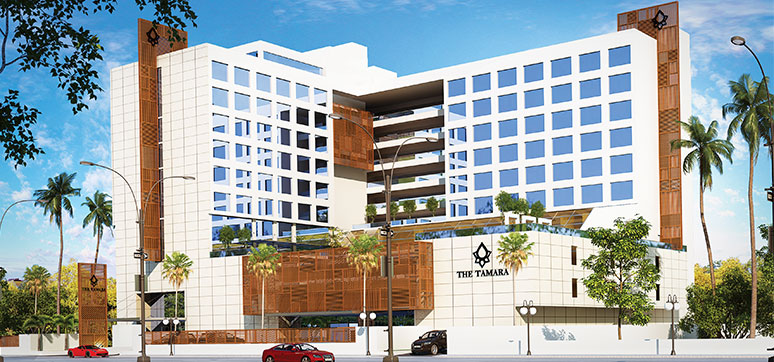
The clean minimalistic façade of the hotel is achieved by the geometric configuration of windows.
The two towers have 160 guest rooms with windows using DGU. There are G.I. square hollow pipe fenestrations for large windows on the lower floors and these fenestrations effectively isolate direct sun penetration and traffic noise.
♦ How did You get to Design Timber Structures?
My domain knowledge and skill in designing timber buildings started in 1995. I realised that ‘green’ or ‘legal’ timber sourced through scientifically correct re-forestation is a very environment friendly concept.
I decided that I will spearhead a nationwide trend to design and build ‘organic’ buildings by using seasoned softwood or hardwood that used ‘Green’ rated timber. Starting from the Poovar Island Resort in 1997 to Tamara Kodai in 2017, we at Iyer & Mahesh designed at least 21 resort hotels using ‘Green’ timber. A coffee table book called ‘Amazing Timber Resorts’ was published in 2013 which has become a reference book for young architects today.
Innovation Centre at Aakulam, Phase II – Trivandrum for Rajiv Gandhi Centre for Biotechnology
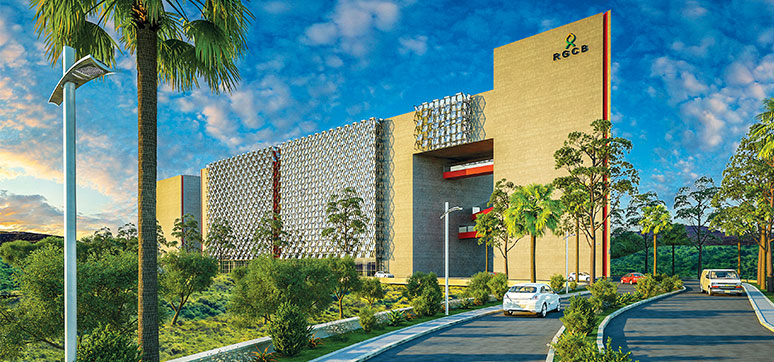
This massive bitechnology hub with ‘triangular’ footprint is designed and conceptualized as a ‘Net Zero’ building. The façades facing south and south-east will have façade integrated solar energy system. In addition, the 50,000 Sq ft terrace will also have a large solar farm.
There is an eight-storied triangular ‘atrium’ with a glass roof on a space frame and this eight-storied atrium space will be landscaped and used as an interactive space for scientists. This building is in the planning stage and the structure is supposed to be completed by 2023.
Façades and cladding industries in India have gone through a sea change in the past decade.
♦ Tell us About the Latest in Façade & Cladding Material and Technologies Available in the Indian Market and Those Used in Your Projects?
There is innumerable innovation in façade & fenestrations, but most of these are imported technologies and systems. This is a sad situation and because of the exorbitant cost, only high budgeted buildings built by large corporate clients can afford these technologies. I would like to see a day when all these façade systems are entirely built with ‘made in India’ hardware and specialized glass products.
‘KRIS’ Commercial building, Bengaluru
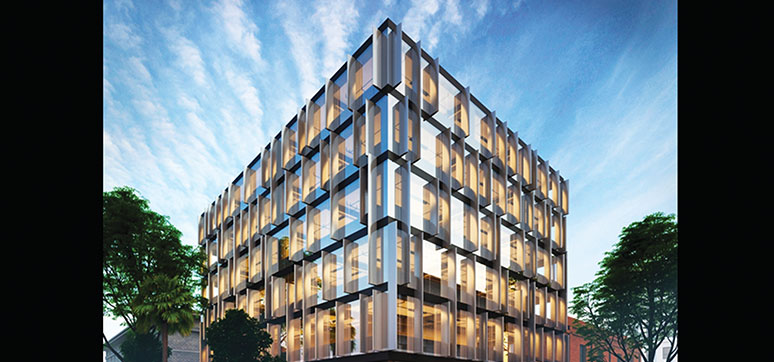
This ‘Smart’ building designed for start-ups and incubating firms have fully glazed façade with vertical fins which drastically reduce the solar penetration. The structural glazing is done with DGU and low-E-glass. The ‘central core’ configuration of the plan allows daylight from all four sides and this planning concept enables all the office workstations to enjoy daylight.
♦ What are the Key Factors to Consider While Designing and Installing Façades & Fenestration Systems?
Naturally, ‘natural light’ and ‘natural ventilation’! The other major factors are solar heat gain and ultimately the ideal U-value.
Please brief on the technical benefits of a well-managed façade and how it helps the building to be energy-efficient, at the same time could provide a better interior environment?
Achieving ‘U-value’ intermission is the key parameter for a wellmanaged façade. Normal annulled glazing in a façade has approx. U-value 3.0 to 4.0, but for achieving the manageable level of comfort and economy in airconditioning, the U-value of 3.5 has to be brought down to approx. 1.5 or even lower.
NABARD Regional Office Building at Trivandrum
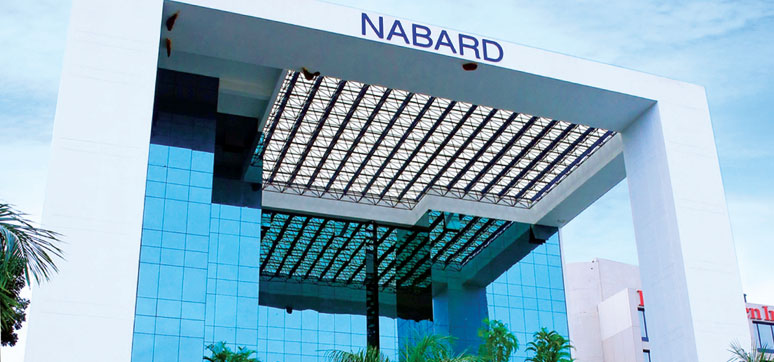
This building designed in 1990 is considered to be one of the most modern ‘cubism’ architectures with features that enable energy saving on structural glazing. As can be seen in the picture, the master roof which covers the ‘split level’ garden terraces totally prevent incident solar penetration on its East façade until afternoon. The building therefore did not require DGU or low-Eglass.
♦ What are your Views on Future Façades & Fenestration Technologies and Materials?
For Indian condition, I suggest a very deep roof overhang or extended chajjas and vertical louver elements as the key systems.A lot of air-conditioning cost and fenestration cost can be reduced if we can have ‘depth’ in façade by which incident solar light is reduced or eliminated at any time of the day. A study on ‘solar penetration’ is required while planning façades instead of blindly creating a fancy elevation.
According to you, what is an intelligent façade? How can intelligent façades bring in the greenhouse effect and also restricting intensive use of air conditioners? What about sustainability and environmental considerations when choosing the façade/cladding material?
One of the sad things is that in India is that we do not have a proven agency which can design and execute a ‘façade integrated solar energy system’. Another problem in India is that we do not have a proven agency which can design a ‘solar energy integrated façade’. If more and more buildings have to be “innovative” in reducing energy consumption, façade integrated solar energy system has to be available.
College of Architecture Trivandrum (C.A.T)
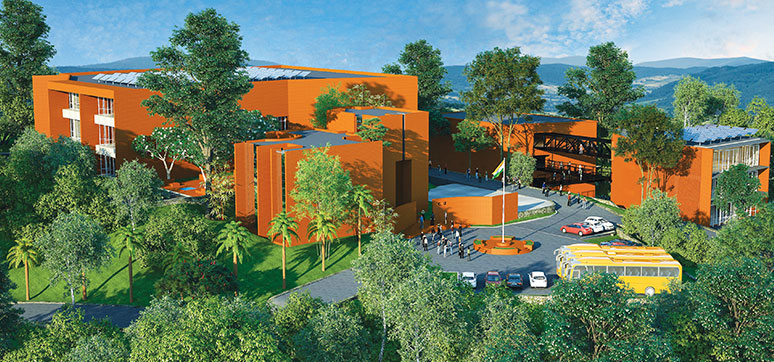
The extremely futuristic minimalistic architecture school has three structures interconnected through passages and bridges. The black façades are interpolated with a deep recess, jaaly walls, and large windows. This interesting design school building is conceived so as to reduce the felling of trees and reduce earthwork.
♦ What is your Advice to Young, Aspiring Architects?
The young architects today are not studying climatology and solar penetration. These architects, as well as the experienced architects, need to hire a specialist façade engineering consultant for bigger projects unless they are capable of preparing detailed engineering drawings for complicated and large area façades.
Life Sciences Park at Trivandrum for KSIDC
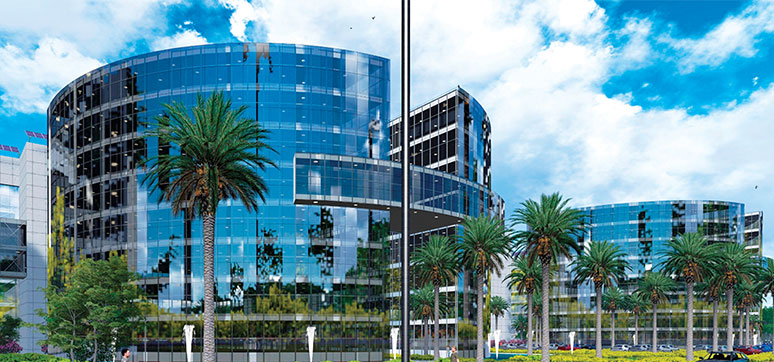
The design for this sleek biotechnology park was won by Iyer & Mahesh through a competition. This Research cum Bio-Incubation Centre has multiple building units and all blocks have a minimalistic design concept achieved by using DGU and low-E-glass.
